Recent Posts
How to create a fire safety plan for your family
4/19/2024 (Permalink)
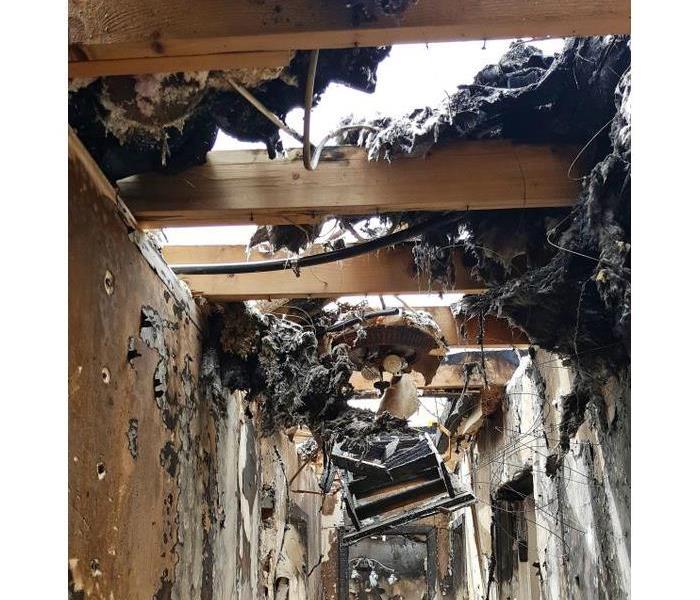 SERVPRO is ready to respond to your fire disaster day or night!
SERVPRO is ready to respond to your fire disaster day or night!
In the hustle and bustle of daily life, it's easy to overlook the importance of having a robust fire safety plan in place for your family. While we hope for the best, it's crucial to be prepared for the unexpected. At SERVPRO®, we believe in not only restoring your home after a disaster but also in helping you prevent them. In this blog post, we'll guide you through the essential steps to create a comprehensive fire safety plan that will keep your loved ones safe.
Map Out Escape Routes
Begin by mapping out all possible escape routes from each room in your home. Identify two exits for every room, including doors and windows. Ensure that all family members are familiar with these routes, and practice them regularly.
Establish Meeting Points
Designate a safe meeting point outside your home. This could be a neighbor's house, a tree, or any landmark that is a safe distance away. In the event of a fire, gather your family at this designated spot to ensure everyone is accounted for.
Install Smoke Alarms
Smoke alarms are your first line of defense against a fire emergency. Install them in every bedroom, hallway, and common area of your home. Regularly test the alarms to ensure they are in working order, and replace batteries at least once a year.
Teach Fire Safety to Children
It's crucial that even the youngest members of your family understand the basics of fire safety. Teach them the stop, drop, and roll technique, and make sure they know how to dial emergency services. Use age-appropriate language to discuss fire safety to avoid causing unnecessary fear.
Create an Emergency Contact List
Compile a list of emergency contacts, including local fire departments, medical facilities, and family members. Keep this list in a visible location, such as on the fridge, and ensure that everyone knows where to find it.
Practice Fire Drills
Regularly conduct fire drills in your home to ensure everyone is familiar with the escape routes and meeting points. Practice different scenarios, including nighttime evacuations, to ensure preparedness in any situation.
Invest in Fire Safety Equipment
Equip your home with fire safety tools such as fire extinguishers, fire blankets, and escape ladders for upper floors. Ensure everyone knows how to use these tools safely.
Educate on Electrical Safety
Many fires start due to electrical issues. Educate your family on proper electrical safety practices, including avoiding overloading outlets, using appliances responsibly, and regularly inspecting cords for damage.
By taking these proactive steps, you not only enhance the safety of your family but also contribute to the overall well-being of your community. At SERVPRO, we believe that prevention is the best defense, and a well-crafted fire safety plan is a key component of that defense. Stay safe, stay prepared, and remember – we're here for you in any unexpected event.
Unmasking Mold's Stealthy Hideouts: 5 Hidden Places Mold Can Thrive
3/20/2024 (Permalink)
Mold, a resilient intruder, has a knack for finding concealed spots to establish its presence. In this blog, we'll unveil five hidden places where mold can thrive.
Behind Wallpaper
Wallpaper, while providing an aesthetically pleasing finish to walls, can create a hidden haven for mold. The adhesive used to affix wallpaper can trap moisture, especially in humid environments. Over time, this trapped moisture can foster mold growth behind the wallpaper, hidden from plain view.
HVAC System
Heating, ventilation, and air conditioning (HVAC) systems are intricate networks of ducts and components. Mold spores can infiltrate these systems, finding refuge in the dust and moisture present. The dark, damp interiors of HVAC systems provide an ideal environment for mold to propagate, often escaping notice until it becomes a pervasive issue.
Beneath Carpets and Padding
Carpets and their underlying padding can harbor mold if exposed to moisture. Spills, leaks, or high humidity levels can lead to damp conditions beneath carpets, creating an unseen breeding ground for mold. The mold may remain concealed until a thorough inspection is conducted.
Inside Wall Cavities
Mold can silently thrive within wall cavities. Leaks from pipes, roofs, or faulty insulation can introduce moisture into these spaces, providing the necessary conditions for mold growth. Detecting mold within wall cavities often requires professional inspection and remediation.
Within Appliances
Appliances that use water, such as dishwashers, washing machines, or refrigerators with ice makers, can be susceptible to mold growth. Moisture accumulation within these appliances, coupled with warmth, creates an environment conducive to mold. The inner workings of appliances may hide mold colonies until a closer examination is conducted.
Preventing Mold in Hidden Spaces
Regular Inspection
Conduct routine inspections of vulnerable areas, including behind wallpaper, within HVAC systems, beneath carpets, and inside appliances, to identify potential mold issues before they escalate.
Prompt Repairs
Address water leaks, faulty appliances, and damaged materials promptly to minimize the introduction of moisture into hidden spaces.
Ventilation Improvement
Enhance ventilation in enclosed spaces to reduce humidity levels, creating an environment less conducive to mold growth.
Regular Cleaning
Implement regular cleaning practices, especially in areas prone to moisture, to deter mold growth and identify potential issues early on.
Professional Assessments
Enlist the services of professionals for comprehensive assessments, particularly in areas that are challenging to inspect independently, such as HVAC systems or wall cavities.
Understanding where mold can hide empowers homeowners to take proactive measures in preventing its stealthy colonization. By addressing moisture sources, conducting regular inspections, and implementing effective preventive strategies, individuals can thwart mold's attempts to establish hidden strongholds within their living spaces. SERVPRO® is just a phone call away when you need expert assistance in mold removal, remediation, and restoring your home from mold damage.
Balancing Restoration with Preservation: Safeguarding Historical/Old Homes from Water Damage
2/12/2024 (Permalink)
Water damage poses unique challenges when it comes to historical and old homes, as their architectural and cultural significance must be preserved alongside restoration efforts. In this blog post, we will explore the delicate balance between restoration and preservation, specifically focusing on how water damage can impact historical homes and strategies to mitigate the damage while maintaining their historical integrity.
Recognizing the Vulnerabilities of Historical/Old Homes
Highlight the vulnerabilities of historical and old homes to water damage, such as outdated plumbing systems, worn roofing, and inadequate drainage. Discuss the potential consequences of water damage on the historical fabric of these homes, such as rotting wood, crumbling mortar, and deterioration of original features.
Preserving Historical Integrity during Restoration
Address the importance of preserving the historical integrity of these homes during restoration efforts. Explore techniques and materials that align with historical preservation guidelines, such as using appropriate period materials and replicating original craftsmanship while repairing water-damaged areas.
Assessing Water Damage and Planning Restoration
Discuss the crucial step of assessing water damage and creating a detailed restoration plan for historical homes. Emphasize the need for professional expertise in understanding the unique characteristics and construction methods of historical properties to accurately assess and plan restoration measures.
Implementing Effective Water Mitigation Strategies
Explore water mitigation strategies specific to historical homes, such as installing modern drainage systems, repairing leaks or gaps in the roof, and improving ventilation to prevent moisture buildup. Highlight the significance of addressing water infiltration at the source to minimize ongoing damage and prevent future restoration needs.
Utilizing Specialized Restoration Techniques
Detail specialized restoration techniques that balance preservation with necessary repairs. Discuss methods for treating water-damaged wood, such as consolidation and conservation-grade treatments, as well as compatible materials and techniques for masonry, plaster, and decorative elements.
Engaging Preservation Experts and Contractors
Encourage homeowners of historical homes to consult preservation experts and contractors experienced in working with historic properties. Highlight the importance of finding professionals who understand the unique restoration challenges associated with maintaining the historical character of these homes while mitigating water damage.
Balancing restoration with preservation is essential when addressing water damage in historical and old homes. By recognizing vulnerabilities, preserving historical integrity, assessing damage, implementing effective water mitigation strategies, utilizing specialized restoration techniques, and engaging preservation experts, homeowners can safeguard these cultural treasures for generations to come.
The Aftermath of Storm Flood Damage: Navigating the Path to Recovery
1/2/2024 (Permalink)
Storms and flooding can wreak havoc on homes and communities, leaving behind a trail of destruction and a long road to recovery. The aftermath of storm flood damage can be overwhelming, both emotionally and physically. Understanding the steps to take in the aftermath of a flood is crucial for homeowners to navigate the path to recovery effectively. In this blog, we will explore the key considerations and steps to take when dealing with the aftermath of storm flood damage.
Ensure Safety
First and foremost, prioritize your safety and the safety of your family. Before entering your home after a flood, wait for authorities to deem it safe. Be cautious of electrical hazards, structural damage, and contaminated water in your property. Take photos and videos of the flood damage to your property, both inside and outside. This documentation will be essential for insurance claims and assistance applications.
Contact Your Insurance Provider
Notify your insurance provider about the flood damage as soon as possible. Understand your policy coverage details and file a claim promptly. Provide the documentation you gathered as evidence of the damage.
Begin the Cleanup Process
Remove any standing water from your property using pumps or wet-vacs. Use fans and dehumidifiers to dry out the affected areas as quickly as possible. Remove damaged furniture, carpets, and other belongings to prevent further mold growth. Consider hiring a professional restoration company with experience in flood damage cleanup. These professionals have the expertise, equipment, and knowledge to thoroughly restore your property.
Mitigate Mold Growth
Mold can start to grow within 24-48 hours after a flood. Thoroughly clean and disinfect surfaces and employ proper drying techniques to prevent mold growth. Consider using mold inhibitors or hiring a mold remediation specialist if necessary. Have a licensed electrician inspect your electrical system before restoring power. Have your HVAC system checked and cleaned by professionals to prevent contamination.
Communicate with Local Authorities and Disaster Assistance Programs
- Stay updated with local authorities regarding disaster assistance programs and resources available.
- Check if you qualify for any government assistance programs to aid in your recovery.
Take Steps to Prevent Future Flood Damage
Implement flood-resistant modifications to your property, such as elevating electrical outlets and appliances, installing flood-resistant barriers, or redirecting water flow away from your home. Consider purchasing flood insurance if you live in an area prone to flooding. The aftermath of storm flood damage can be emotionally challenging. Seek support from family, friends, or professional counselors to help cope with the emotional toll.
Dealing with the aftermath of storm flood damage requires patience, resilience, and practical steps towards recovery. Prioritize your safety, document the damage, contact your insurance provider, and engage professional help for a thorough cleanup. Mitigate mold growth, address electrical and HVAC systems, and explore available disaster assistance programs. Take proactive measures to prevent future flood damage and seek emotional support during this challenging time. With a comprehensive and organized approach, homeowners can navigate the path to recovery and restore their homes to their former glory.
Creating a Fire Safety Plan for Your Family
12/6/2023 (Permalink)
A fire can happen anytime, anywhere, and to anyone. That's why it is crucial to have a fire safety plan in place for your family. Your fire safety plan helps you prepare for the worst and, more importantly, save lives. In this blog, we will discuss how to create an effective fire safety plan for your family.
Identify Escape Routes
Identify at least two exit routes from each room in your home, such as doors and windows.
Make sure all exit routes are clear of obstacles and easy to access. Create a plan for people with mobility challenges, like infants, elderly, and pets, to safely escape.
Practice Fire Drills
Conduct regular fire drills to familiarize your family with the escape routes and the sound of the smoke alarms. Set off the smoke alarm and practice evacuating from different rooms, testing all exit routes. Practice fire drills at different times of the day and in different seasons.
Define Roles and Responsibilities
Assign roles to each family member to ensure a smooth evacuation, such as calling for emergency services, helping young children leave the house, and assisting the elderly or disabled. Practice the roles and responsibilities during fire drills, exchanging tasks each time.
Plan for Meeting Places
Decide on a specific meeting place outside your home once everyone escapes.
Choose a spot that's a safe distance from the house, such as a neighbor's house or a street corner. Ensure everyone in your family knows the meeting place and how to get there.
Maintain Fire Safety Equipment
Install smoke alarms at every level of your home, in each bedroom, and outside sleeping areas and test them regularly. Keep fire extinguishers on hand, and ensure everyone in your family knows how to use them. Check the batteries of smoke alarms and fire extinguishers, and replace them as needed.
Post Emergency Contact Information
Post emergency phone numbers such as 911, Fire Department, and a designated family contact person near the phone . Keep a battery-operated radio, or stay updated with your smartphone for emergency announcements.
Creating a fire safety plan for your family is critical in preventing loss of life and property damage during a fire. By identifying escape routes, practicing fire drills, defining roles and responsibilities, planning for meeting places, maintaining safety equipment, and posting emergency contact information, you're taking crucial steps towards ensuring your family's safety in the event of a fire. Make preparing a fire safety plan a priority for your family today. Remember, safety starts with you!
Preventive Measures for Mold Growth: Safeguarding Your Flooring
11/2/2023 (Permalink)
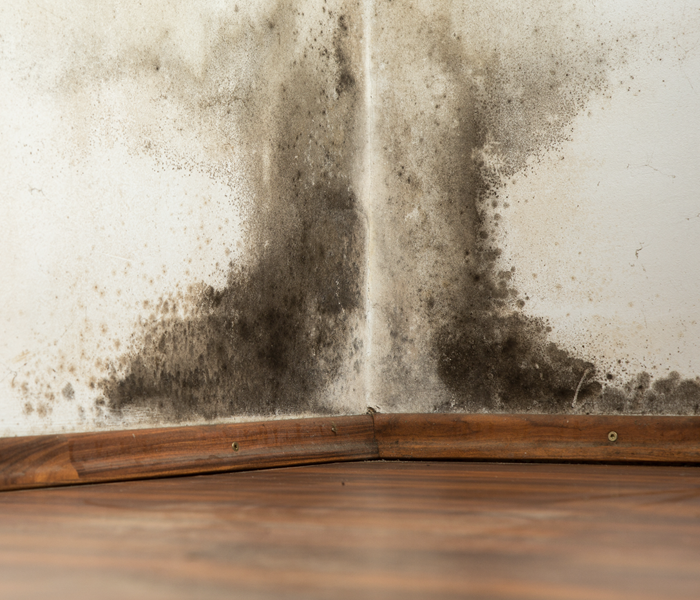 Mold can affect different types of flooring. Practice good housekeeping.
Mold can affect different types of flooring. Practice good housekeeping.
Mold growth is a common problem in buildings and can significantly impact the appearance and durability of various flooring materials. In this blog, we will explore how mold affects different types of flooring, highlighting the specific challenges and considerations for each material. Understanding how mold interacts with various flooring types can help homeowners and businesses take appropriate preventive measures and ensure the longevity of their floors.
Carpet
Carpeting can be particularly vulnerable to mold growth due to its porous nature. When exposed to moisture, such as from leaks or flooding, carpets can quickly become a breeding ground for mold. Mold growth on carpets can lead to discoloration, foul odors, and deterioration of the carpet fibers. Additionally, mold-infested carpets can be difficult to clean and may require professional restoration. Regular vacuuming, prompt drying of any spills or leaks, and maintaining proper indoor humidity levels are essential in preventing mold on carpets.
Hardwood Flooring
While mold growth on hardwood flooring is less common than on carpets, it can still occur under certain conditions. Excessive moisture from leaks or high humidity levels can penetrate the wood, causing it to swell and create an environment conducive to mold growth. Mold can discolor and warp hardwood floors, compromising their appearance and structural integrity. Promptly addressing any moisture issues, ensuring proper ventilation, and utilizing dehumidifiers in humid climates can help prevent mold on hardwood floors. Regular cleaning with appropriate products and avoiding excessive water during cleaning are also essential to maintain the condition of hardwood flooring.
Tile and Laminate Flooring
Tile and laminate flooring are less susceptible to mold growth compared to carpet and hardwood. However, if water seepage or excessive moisture occurs beneath or between the tiles or laminate planks, mold can still develop. Mold growth can lead to discoloration and deterioration of grout lines, causing tiles to become loose or crack. In laminate flooring, moisture can cause warping or swelling of the boards. It is crucial to address any water leaks or spills promptly and ensure proper ventilation in areas with tile or laminate flooring. Regular cleaning and sealing of grout lines can also help prevent mold growth.
In addition to understanding how mold affects different types of flooring, implementing preventive measures can significantly reduce the risk of mold growth and preserve the integrity of your floors. Firstly, ensuring proper moisture control throughout your home or business is essential. This includes promptly addressing any leaks or water damage, maintaining optimal indoor humidity levels, and improving ventilation in areas prone to moisture accumulation. Regularly inspecting and maintaining plumbing systems, roof integrity, and waterproofing measures can also help prevent moisture-related issues. Additionally, practicing good housekeeping by promptly cleaning up spills and drying wet areas can prevent mold growth. Utilizing anti-microbial cleaners designed for your specific flooring material can also be beneficial in inhibiting mold growth. By taking these preventive measures, you can safeguard your flooring and create a healthier living or working environment.
7 Steps to Take When Responding to Burst Pipes
10/10/2023 (Permalink)
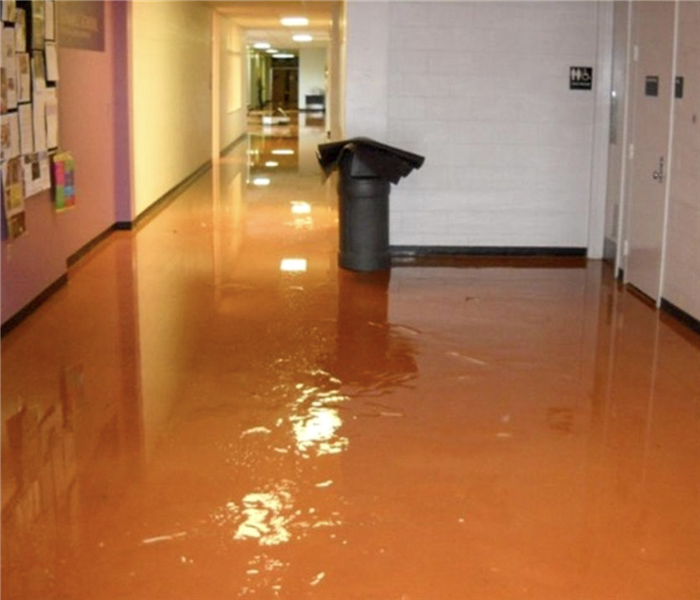 By following these emergency steps, you can effectively manage burst pipe emergencies and restore your property to its preloss condition.
By following these emergency steps, you can effectively manage burst pipe emergencies and restore your property to its preloss condition.
Discovering a burst pipe in your home or business can be a stressful and panic-inducing situation. Burst pipes can cause significant water damage and disrupt your daily activities. However, knowing the right emergency actions to take when faced with a burst pipe can help minimize the damage and get the situation under control. In this blog post, we will outline the crucial steps to follow in response to burst pipes.
Step 1: Shut off the Water Supply
The first and most important step is to shut off the main water supply to your property. Locate the main water valve, which is usually located near the water meter or where the water supply enters your property. Turn the valve clockwise until it is fully closed. This will stop the flow of water and prevent further damage.
Step 2: Turn Off Electricity and Gas
If the burst pipe is near electrical outlets or appliances, it is essential to turn off the electricity at the main circuit panel to avoid any electrical hazards. Additionally, if you have a gas supply in your property, it's crucial to turn off the gas valve to prevent any potential leaks or fire hazards.
Step 3: Open Faucets and Drain Water
Open all the faucets in your property to relieve the pressure in the plumbing system and allow any remaining water to drain. This will help reduce the amount of water damage. If there is excessive water pooling in the affected area, use buckets, mops, or towels to remove as much water as possible.
Step 4: Locate the Burst Pipe
Once the initial emergency actions are taken, locate the burst pipe. This may require inspecting exposed pipes in your basement, crawl space, or utility room. Look for signs of water spraying, dripping, or pooling. Identifying the location of the burst pipe will help restoration professionals assess the extent of the damage and determine the necessary repairs.
Step 5: Call a Professional Restoration Company
Contact a professional water damage restoration company, such as SERVPRO® of Hendersonville, as soon as possible. They have the expertise, tools, and resources to handle burst pipe emergencies. Restoration professionals can quickly assess the situation, mitigate further damage, and implement the necessary repairs to restore your property.
Step 6: Document the Damage for Insurance Claims
Take photographs and videos of the burst pipe and the resulting water damage. This documentation will be crucial for insurance claims and will help ensure proper reimbursement for the repairs and restoration process. Make sure to keep records of all communication with restoration professionals and insurance providers.
Step 7: Preventive Measures
After the burst pipe emergency is under control and the necessary repairs are made, consider taking preventive measures to minimize the risk of future bursts. This may include insulating pipes in colder areas, monitoring your plumbing system for any signs of leaks, and scheduling regular maintenance checks by a licensed plumber.
Responding to burst pipes requires swift and decisive action to minimize water damage and protect your property. By following these emergency steps - shutting off the water supply, turning off electricity and gas, draining water, calling professional restoration services, documenting the damage, and taking preventive measures for the future - you can effectively manage burst pipe emergencies and restore your property to its preloss condition. Remember, always prioritize safety and seek professional assistance to ensure a thorough and efficient recovery process.
Tropical Chaos: Assessing the Environmental Fallout of Storm Debris in the Southeast
9/27/2023 (Permalink)
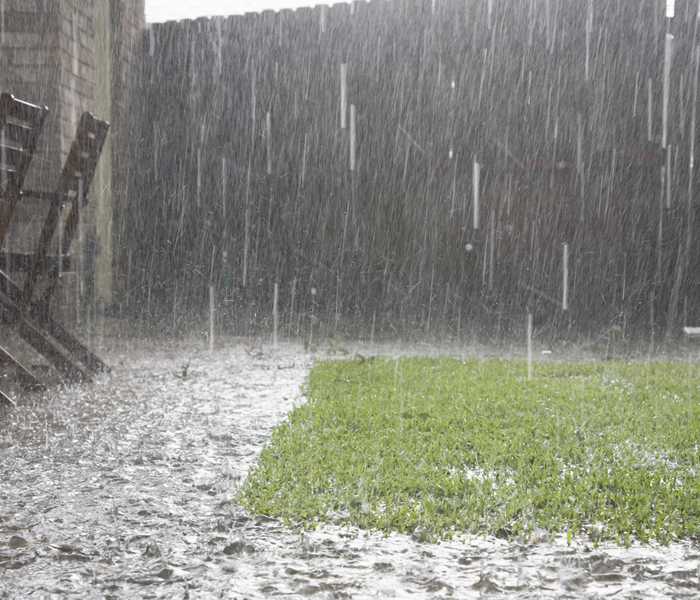 Take proactive measures to protect your environment during a storm
Take proactive measures to protect your environment during a storm
Storms can have devastating effects on communities, infrastructure, and the environment. In the Southeast region, where severe weather events are not uncommon, the aftermath of storms often includes significant amounts of debris. While the focus is often on the immediate cleanup and recovery efforts, it is equally important to recognize and address the environmental impact of storm debris. In this blog post, we will explore the environmental consequences of storm debris in the Southeast and the urgent need for proper management.
Habitat Destruction
Storm debris, such as fallen trees and vegetation, can result in habitat destruction for various species. Trees provide critical habitat and food sources for birds, insects, and other wildlife. When their habitats are destroyed, these species can be displaced or face difficulties finding food and shelter. This disruption to the ecosystem can have long-lasting effects on biodiversity and the overall health of the regional ecosystem.
The removal of vegetation by a storm can lead to increased soil erosion, especially in areas prone to heavy rainfall. Without the natural protection of plants and trees, soil becomes more vulnerable to erosion, resulting in sediment runoff into waterways. This sedimentation can negatively impact aquatic ecosystems by reducing water quality, harming fish and other aquatic organisms, and disrupting the delicate balance of the ecosystem.
Increased Flooding Risk
Storm debris, if not properly managed, can contribute to increased flooding risks. When debris accumulates in waterways, it can obstruct the natural flow of water, causing blockages and potential flooding. This not only poses a danger to neighboring communities but also exacerbates the environmental consequences by further disrupting the delicate balance of the surrounding ecosystems.
Storm debris may release harmful pollutants into the air when it decomposes or is burned improperly. Burning debris can release toxic chemicals and particulate matter, contributing to air pollution. In addition, as debris decomposes, it releases methane gas, a potent greenhouse gas that contributes to climate change. Proper management and disposal of storm debris are crucial to minimizing air pollution and mitigating its impact on both human health and the environment.
Threat to Coastal Areas
Coastal regions in the Southeast are particularly vulnerable to the environmental impact of storm debris. Debris washed ashore can damage sensitive coastal habitats, including coral reefs, mangroves, and seagrass beds. These habitats are vital for marine biodiversity, providing nursery grounds for fish and serving as protective barriers against erosion and storm surge. The accumulation of storm debris along shorelines can disrupt these delicate ecosystems and exacerbate erosion risks, compromising the resiliency of coastal communities.
Proper Debris Management
Addressing the environmental impact of storm debris requires proper management and disposal practices. It is essential to prioritize recycling and composting options for organic debris, such as fallen tree branches and vegetation. Recycling provides an opportunity to repurpose materials and reduce the demand for virgin resources. Additionally, implementing effective sediment and erosion control measures during cleanup can minimize the impact of debris on water quality and aquatic ecosystems. Collaborative efforts between local communities, government agencies, and environmental organizations are crucial to ensure a comprehensive and sustainable approach to storm debris management.
The environmental impact of storm debris in the Southeast is an urgent concern that requires immediate attention. It is our responsibility to implement sustainable solutions, prioritize recycling and composting, and take proactive measures to minimize the environmental impact. By doing so, we can protect the delicate balance of our ecosystems, preserve biodiversity, and ensure a sustainable future for the Southeast and beyond.
Choosing the Best Fire Restoration Company: Key Factors to Consider
8/10/2023 (Permalink)
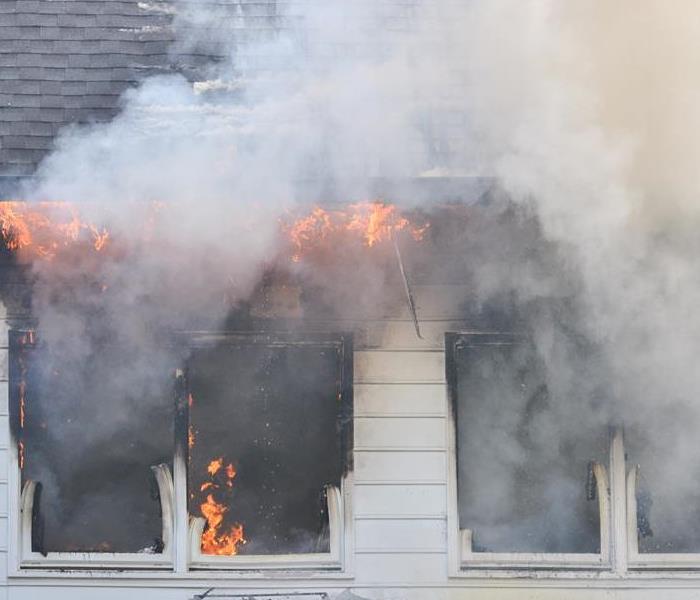 Choosing the right restoration company is crucial for recovery after a fire loss.
Choosing the right restoration company is crucial for recovery after a fire loss.
Experiencing a fire in your home or business is a traumatic event that requires immediate action for restoration. Hiring a reputable fire restoration company is an essential step in the recovery process. With numerous companies claiming to offer the best services, it can be overwhelming to choose the right one. In this blog post, we will discuss the key factors to consider when selecting a fire restoration company.
Emergency response time
Fires can cause extensive damage that requires immediate attention. Look for a fire restoration company that offers quick emergency response, ideally with a 24/7 availability. They should be able to dispatch a team to your location promptly to begin the restoration process.
Fire restoration requires specialized knowledge and skills to properly assess and address the damage. Look for a company that has certified professionals with experience in fire restoration. They should have a track record of successfully restoring properties after fire incidents.
Licensing and insurance
Ensure that the fire restoration company you choose is licensed and insured. This not only demonstrates their professionalism and adherence to industry standards but also protects you from any liability in case of accidents or further damage during the restoration process.
Fire damage goes beyond just structural issues. Look for a restoration company that offers a wide range of services, including smoke and soot removal, odor mitigation, content cleaning and restoration, and structural repairs. A company that can handle all aspects of the restoration process will simplify the coordination and streamline the overall timeline.
Equipment and technology
The restoration company should have access to advanced equipment and technology for effective and efficient restoration. This includes industrial-grade water extractors, dehumidifiers, air scrubbers, and thermal imaging cameras. The use of modern equipment can expedite the drying process and ensure thorough restoration.
Research the reputation of the fire restoration company by checking customer references and testimonials. Reach out to previous clients or check online reviews to gauge their satisfaction with the quality of work, professionalism, and customer service provided by the company.
Insurance claim assistance
Dealing with insurance claims can be a complex process. Look for a fire restoration company that offers assistance with the insurance claim process. They should be knowledgeable about insurance requirements and be able to provide detailed documentation and evidence to support your claim.
Obtain written estimates from multiple fire restoration companies and compare their pricing and services. A trustworthy company will provide transparent pricing and clearly outline the scope of work and associated costs. Be cautious of companies that provide significantly lower estimates as they may compromise on quality.
In conclusion, choosing the right fire restoration company is crucial for effective and efficient recovery after a fire incident. Consider factors such as emergency response time, expertise and experience, licensing and insurance, comprehensive services, equipment and technology, references and testimonials, insurance claim assistance, and transparent pricing. By conducting thorough research and selecting a reputable company, you can ensure that your property is properly restored and back to its pre-fire condition.
Navigating Water: Tackling Common Challenges in Commercial Buildings
7/18/2023 (Permalink)
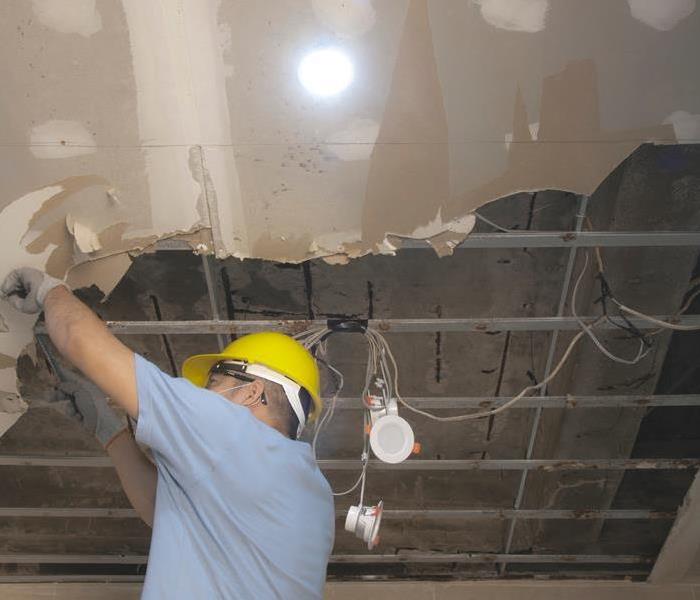 Efficient water management in you commercial building is crucial for a safe environment.
Efficient water management in you commercial building is crucial for a safe environment.
Water is a crucial resource in any commercial building, serving various purposes such as drinking, sanitation, heating, cooling, and irrigation. However, the efficient management of water in commercial buildings can be challenging, leading to several common water issues. These issues can disrupt daily operations, compromise water quality, and result in unnecessary expenses. In this blog, we will explore some of the most prevalent water issues faced by commercial buildings, their causes, and potential solutions.
Leaks and Plumbing Problems
Leaky pipes, faucets, and toilets are common issues that waste significant amounts of water and can lead to structural damage. Faulty plumbing systems, high water pressure, or corrosion can contribute to these leaks. Routine inspection and maintenance of plumbing systems are crucial to detect and address leaks promptly. Implementing water-efficient fixtures and employing professional plumbers for regular maintenance can significantly reduce the occurrence of such issues.
Low Water Pressure
Insufficient water pressure can cause inconveniences such as weak water flow, slow filling of tanks, and ineffective water-based equipment. Common causes of low water pressure in commercial buildings include inadequate pipe sizing, sediment buildup, clogs, or issues with the municipal water supply. To resolve low water pressure, it is important to identify the root cause. Regular cleaning of water storage tanks, installation of pressure-boosting systems, and periodic checks on the plumbing infrastructure can help alleviate this issue.
Water Contamination
Water contamination poses a series of risk of occupants in commercial buildings. Contaminants such as bacteria, chemicals, heavy metals, or pollutants can enter the water supply through various sources. Aging infrastructure, backflow incidents, improper maintenance, or poor water treatment practices can contribute to water contamination. Regular testing of water quality, installation of effective filtration systems, and adherence to proper maintenance protocols can help mitigate contamination risks.
Water Waste and High Consumption
Commercial buildings often experience excessive water waste and consumption due to inefficient practices and outdated infrastructure. Common culprits include over-irrigation, inefficient cooling towers, leaks, and unrestricted water use. Implementing water-saving measures such as low-flow fixtures, smart irrigation systems, and regular leak detection programs can significantly reduce water waste and consumption. Awareness campaigns and employee education on water conservation can also contribute to more responsible water usage.
Inadequate Hot Water Supply
Insufficient or inconsistent hot water supply can be a major inconvenience in commercial buildings, especially in settings that rely heavily on hot water for daily operations such as restaurants, hotels, and hospitals. Inadequate water heater capacity, equipment malfunction, sediment buildup, or piping issues can cause such problems. Regular maintenance of water heaters, proper sizing of equipment, and periodic flushing of tanks can help ensure a consistent and reliable hot water supply.
Efficient water management in commercial buildings is crucial for sustainable operations, cost savings, and maintaining a safe and healthy environment. By addressing common water issues such as leaks, low water pressure, contamination, waste, and inadequate hot water supply, building owners and managers can significantly reduce water-related problems. Regular maintenance, implementation of water-saving technologies, and raising awareness among occupants can pave the way towards a more sustainable and responsible use of water resources in commercial buildings.



 24/7 Emergency Service
24/7 Emergency Service





